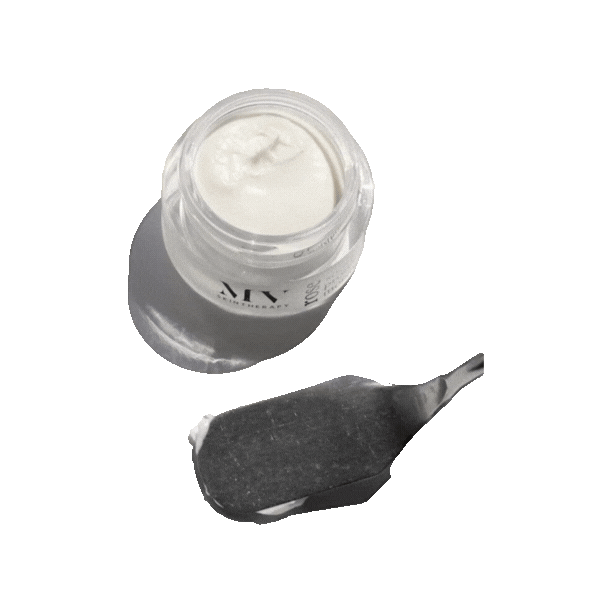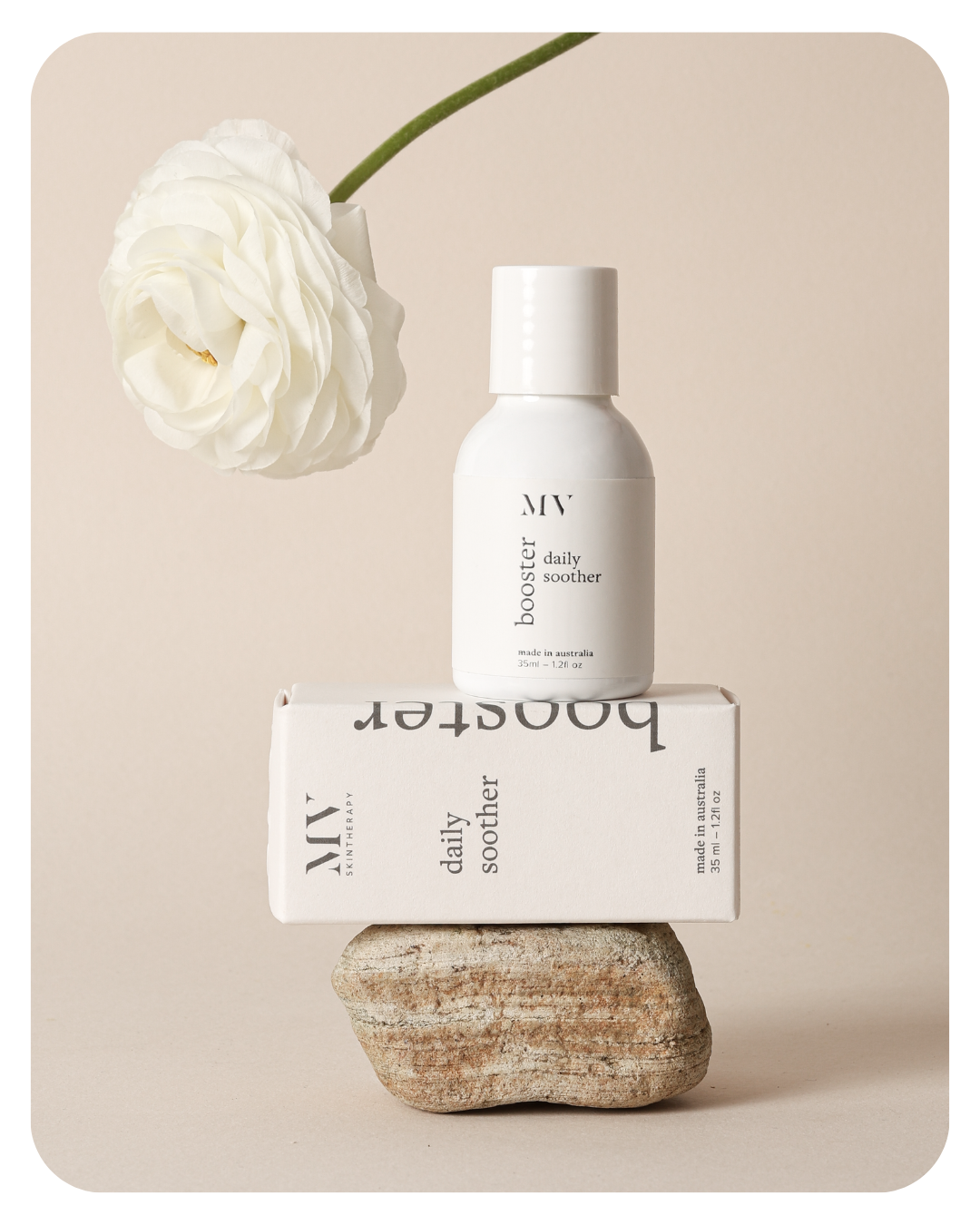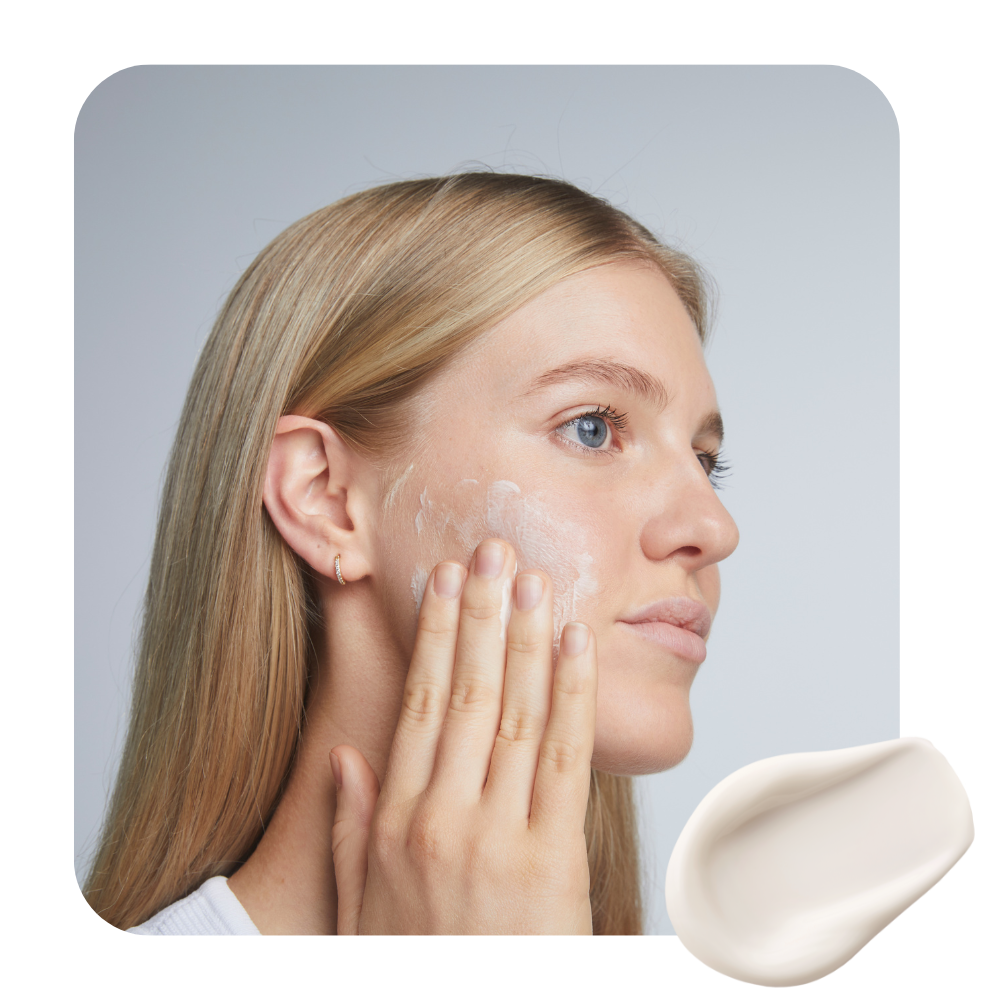
What Causes Eczema
An Educational Deep-Dive

What Causes Eczema
While eczema may show up as a surface-level skin issue, its origins are complex and multifactorial. From a holistic perspective, eczema is best understood as a symptom of internal imbalance and skin barrier dysfunction. Genetics, gut health, environmental exposures, and even emotional stress can all play a role.
But what do all these seemingly unrelated factors have in common?
That’s what we’ll explore here - not just what contributes to eczema flare-ups, but why the skin responds the way it does.
Because when we begin to understand the whole picture (body, mind, and skin), we can stop chasing symptoms and start creating lasting calm, comfort, and resilience.
Genetic Factors
Eczema often runs in families—particularly those with a history of asthma, eczema, or hayfever. This is known as atopy, which reflects a genetic tendency toward heightened immune reactivity and elevated IgE (immunoglobulin E) responses. Individuals with atopic skin may react more intensely to environmental triggers and allergens.
Some people also carry a gene mutation that affects the production of filaggrin, a key protein responsible for maintaining the structure and hydration of the outermost layer of the skin. A deficiency in filaggrin leads to impaired skin barrier function, making the skin more vulnerable to irritants, microbes, and allergens.
The Gut-Skin-Axis
Emerging research continues to highlight the critical link between gut health and skin health, often referred to as the gut–skin axis. A balanced and diverse gut microbiome plays a key role in regulating inflammation, supporting immune tolerance, and maintaining overall skin homeostasis.
In individuals with eczema, studies have shown alterations in gut flora, reduced microbial diversity, and increased intestinal permeability (commonly known as 'leaky gut'). When the gut lining becomes compromised, inflammatory molecules and allergens can pass into the bloodstream more easily, potentially triggering systemic inflammation that shows up in the skin.
Supporting gut integrity through whole foods, prebiotics, probiotics, and reducing inflammatory triggers in the diet can play a valuable role in long-term eczema care, *when done under the guidance of a qualified practitioner.
Hormonal Influences
Fluctuations in hormone levels can significantly impact skin health. Eczema is commonly affected by:
- Puberty, pregnancy, and menopause
- Pre-menstrual phase (often flaring the week before menstruation due to a drop in oestrogen)
- Cortisol elevation, linked to chronic stress, which weakens the skin barrier and increases inflammation
Environmental Triggers
Modern life presents a host of challenges to sensitive skin, including:
- Cold weather and indoor heating (causing dryness)
- Hot showers and baths (overheating the skin and disrupting barrier lipids)
- Tight, scratchy, or synthetic clothing
- Emotional stress and anxiety (linked to cortisol dysregulation)
- Exposure to allergens such as dust mites, pet dander, pollen, and mould
Did You Know
Hot water can disrupt the skin’s protective lipid layer by stripping away essential ceramides and natural oils. This leads to increased trans-epidermal water loss (TEWL), which worsens dryness and inflammation; two major factors in eczema flare-ups. Choosing lukewarm water helps maintain your skin’s barrier and keeps it hydrated and healthy.

Infections, Immune Burden & Allergies
Viral, bacterial, or fungal infections can act as a trigger for eczema in both children and adults. In those with compromised skin barrier function, the skin becomes more susceptible to colonisation, such as Staphylococcus aureus or yeast overgrowth like Malassezia, which can further aggravate inflammation and lead to more severe flare-ups.
Eczema is also closely associated with allergic conditions like hay fever, asthma, and food intolerances. This is known as the atopic triad, and it reflects a pattern of immune system overactivity - one that often affects not just the skin, but the entire body.
When the immune system is in a heightened state, whether due to infection, allergy, or internal stress, it’s the skin that often signals something is out of balance. This is why supporting immune health and calming systemic inflammation can be just as important as what you apply topically.
Conventional Treatments For Eczema
In conventional dermatology, the standard approach to eczema often includes topical corticosteroids, antihistamines, and sometimes topical antibiotics, prescribed to manage inflammation, itching, and secondary infections.
While these treatments may provide temporary relief, they are typically designed to suppress symptoms rather than address the root cause of the condition. For many, long-term reliance on these medications can lead to side effects such as skin thinning, increased sensitivity, and topical steroid withdrawal, issues now widely discussed by patients and integrative practitioners alike.
- Topical steroids - most common prescription
- Antibiotics - for when infections are present
- Antihistamines - for the allergic response
- Oral corticosteroids - severe cases
At MV, we approach eczema differently.
Rather than simply silencing the symptoms, our focus is on restoring skin barrier function, minimising triggers, and gently supporting the skin through every stage of its healing. We also acknowledge the connection between skin and overall health - especially gut, immune, and nervous system imbalances, and embrace a philosophy of holistic eczema care that nourishes from the outside in and the inside out.
While we support any choices you make surrounding your best treatment approach, please know that if you're seeking non-steroid eczema treatments or topical steroid alternatives, support does exist - and healing is possible when the skin is treated with the respect and understanding it deserves.
The MV Eczema Program
Explore our Eczema Collection to designed to strengthen the skin barrier, calm irritated skin, and restore lost moisture.
8 Top Tips For Eczema
MV Founder and Sensitive Skin Expert, Sharon McGlinchey shares the top tips she wishes everyone with eczema knew.
What Is Eczema?
Eczema is now considered the most common skin condition in the developed world. So what exactly is it..









